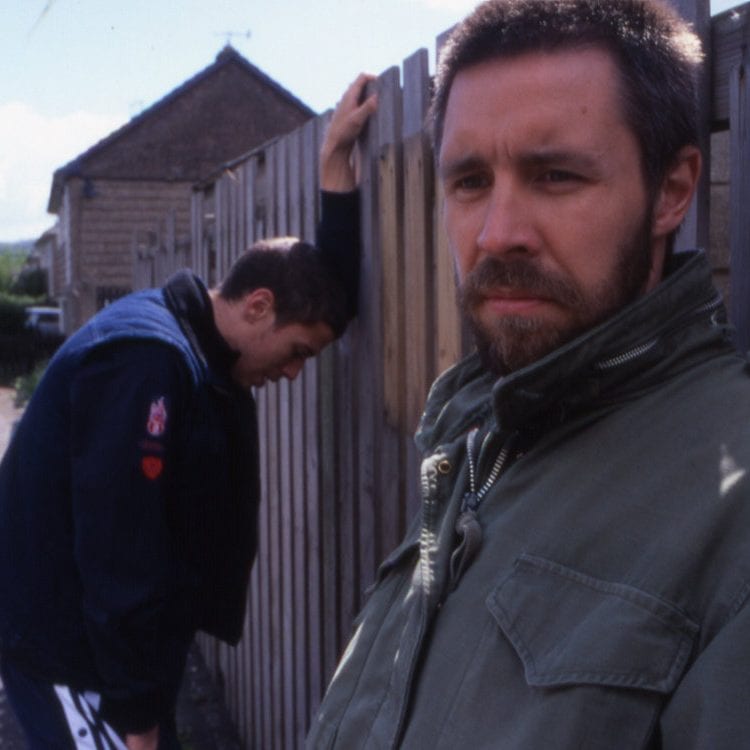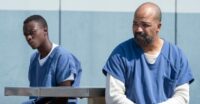Dead Man’s Shoes

I’m not a snob, and I don’t have that classic middle class fear of council estates, but at their worst such places can be claustrophobic, demoralising and dangerous. This is the environment Dead Man’s Shoes depicts, a world of few prospects where the encroaching boredom can provoke those with weaker morals to use and abuse the vulnerable amongst us.
This is true of Sonny, Herbie and their gang of drug dealers, who invited a younger, mentally vulnerable young man, Anthony, into their gang so he could be the butt of their increasingly vile pranks, culminating with pretending to hang Anthony whilst he’s high on the acid that they’ve forced into him. The intended bad trip, though, goes further than intended, as Anthony is left alone and hangs himself for real. It’s heart-breaking but goes to show how those with no regards for others will pick on the vulnerable and abuse them for no better reason than for their own amusement.
Our colleague, Mr. Vincent Greene, in his wonderful article on Dead Man’s Shoes, has identified that “this is emblematic of the worse elements of small-town thinking. Little men that see themselves as big fish swimming in a small pond.” In such a hopeless environment, you will grab whatever importance and dignity you can, even if that means you are debasing yourself and those around you. Not that these little men would ever see it that way. They have to believe they’re big fish lest the despair of their pointlessness drown them.
Anthony’s brother, Richard (played with magnificent intensity by Paddy Considine) represents the desire to improve their station and transcend their background. He had joined the paratroopers as a means of escape (like a lot of working-class young men do), but he could not transcend that same disdain for the vulnerable and violence that informs his drug dealing opposites.
Having returned to town to exact revenge on those that drove his brother to his death, Richard is at least self-aware enough to see that he is no better in his way than those he is killing. He admits he was ashamed of his brother for his mental vulnerability, which shows Richard shows the same disdain for ‘weakness’ as the others. Now he has given in to the animalistic, hateful side of violence that drives these small town big fish, except it’s taken to a hell of an extreme.
Knowing that he’s no better that those he has killed, Richard forces the last gang member to kill him, lest he continue down the path he had tried to escape from. There is no catharsis here, no coming to terms, no better life to go to. From what you are born, so shall you die.
So, Dead Man’s Shoes is not so much about revenge as about being unable to outrun the bleakness of your environment, an environment that wants to swallow you up in its violence and consume you whole. And the tragic thing is it’s a scene that gets played out in estates and small towns across the country every single day.



